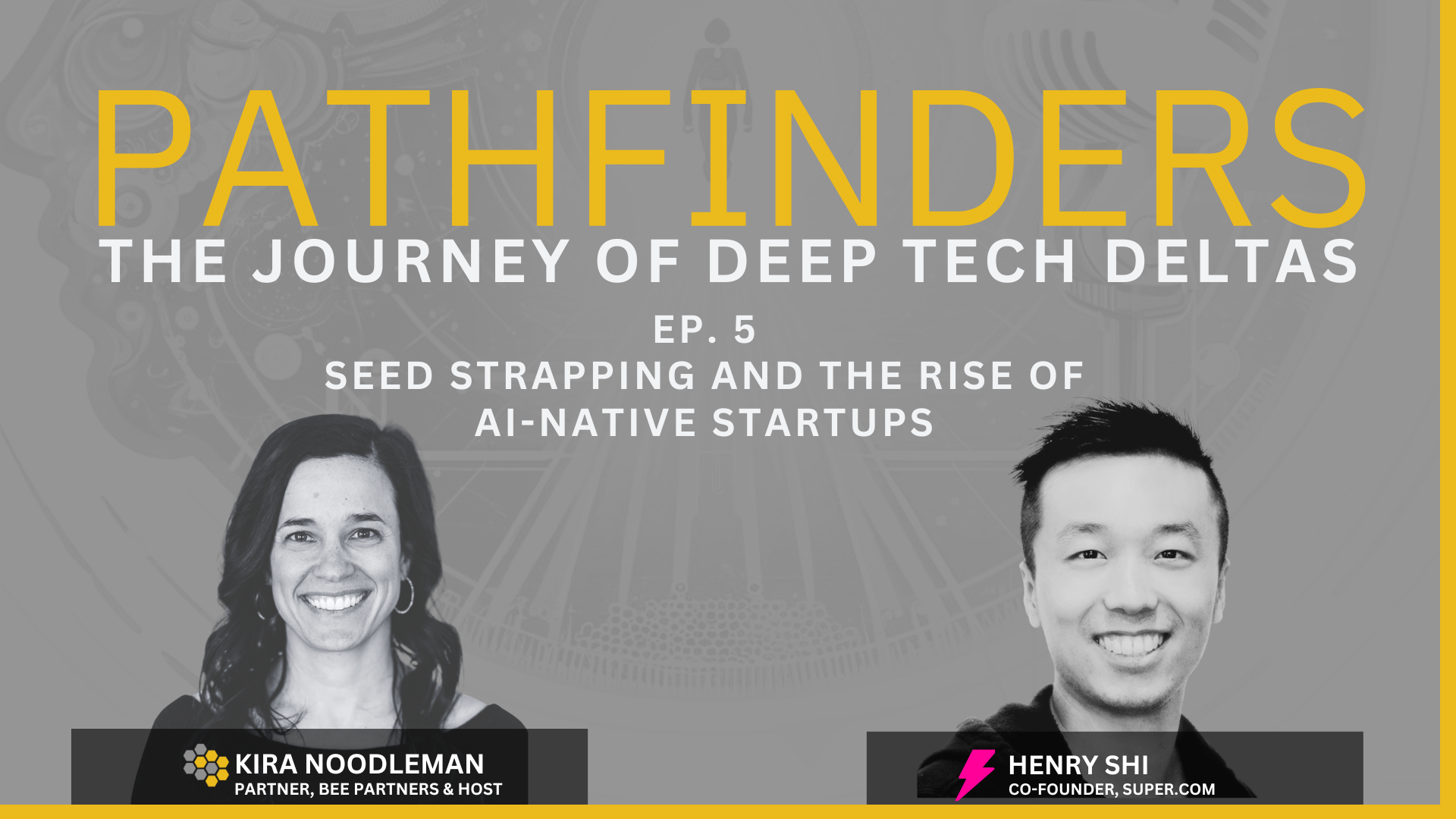Building Lean, Scaling Smart in the AI Supercycle
In the latest episode of Pathfinders, we sit down with Henry Shi, co-founder of Super.com, to explore a new wave of startup building driven by AI innovation. Henry shares his insights on the concept of seed strapping—raising an initial seed round and growing without the need for future fundraising. Enabled by AI, lean headcounts, and rapid go-to-market strategies, today’s startups can achieve more with less, changing the game for founders and investors alike.
Pathfinders | Ep. 5: Henry of Super.com
Seed strapping: A New Blueprint for Startup Growth
Henry breaks down four different models of building companies: traditional venture, bootstrapping, boot-scaling, and the newly emerging seed strapping. Thanks to AI automation, founders can now scale startups with tiny teams, outcome-based pricing models, and lightning-fast execution. Seed strapping offers the best of both worlds—early funding security without the pressure to raise endless rounds—allowing founders to maintain control and profitability from the start.
Tracking the AI-Native Movement
To capture this evolving landscape, Henry launched the AI Leaderboard, a resource that highlights high-performing, AI-native companies based on metrics like ARR, headcount, and revenue per employee. By gamifying visibility, he shines a light on startups that are growing impressively lean. The leaderboard shows how new startups are prioritizing traction over capital raised, with some generating millions in revenue with fewer than ten employees.
Rethinking Product-Market Fit and Growth
Compared to the early days of Super.com, finding product-market fit (PMF) today feels dramatically faster. Thanks to natural market pull around AI solutions, startups can iterate and ship products at record speeds, sometimes finding PMF "built-in" due to the sheer excitement around AI tools. Cold outreach powered by AI also provides surprising effectiveness, reducing the friction typically associated with early sales efforts.
At the same time, Henry stresses that growth today no longer means "growth at all costs." Instead, smart founders focus on lean, efficient scaling, aiming for control and profitability rather than chasing massive valuations through endless fundraising.
Building AI-Native Organizations
For founders not yet deeply leveraging AI, Henry offers straightforward advice: embed AI across every function. From coding assistants to AI-driven sales and marketing workflows, integrating AI tools into daily operations is no longer optional—it’s critical to maintaining a competitive edge. He encourages setting specific AI-related OKRs for teams to force adoption and build new habits that future-proof the business.
Henry also distinguishes AI-native companies from foundational AI builders:
- AI-native startups weave AI into their entire operations.
- Foundational AI companies focus on developing new models or infrastructure-level innovations.
Both are crucial but represent different approaches to participating in the AI supercycle.
The Trade-Offs of AI Tooling
While AI tooling unlocks speed and scale, it brings its own challenges—hallucinations, security risks, and oversight complexity. Henry explains that early-stage companies can afford to "move fast and break things," while later-stage startups need more rigorous code reviews and risk management strategies. Regardless of stage, AI tools are increasingly helping with both speed and safety.
Vision for the Future
Henry paints a compelling picture of a future where founders can build powerful businesses without building massive teams. AI-native companies represent more than a trend—they embody a strategy of smarter, leaner, and faster growth. Seed strapping and AI integration will redefine success for the next generation of startups, encouraging founders to rethink traditional venture paths.
3 Key Takeaways:
- Seed strapping as a Model: Startups can now scale sustainably after a seed round, avoiding the traditional venture treadmill.
- AI-Native Advantage: Embedding AI across every function is key to faster iteration, better productivity, and long-term competitiveness.
- Smart Growth Mindset: Lean growth with profitability and control is becoming the new standard, replacing the "growth at all costs" mentality.
Thanks for tuning in! To see more about the AI-native startup movement and track top companies, check out Henry's AI Leaderboard or listen to this episode of Pathfinders.



No Comments.